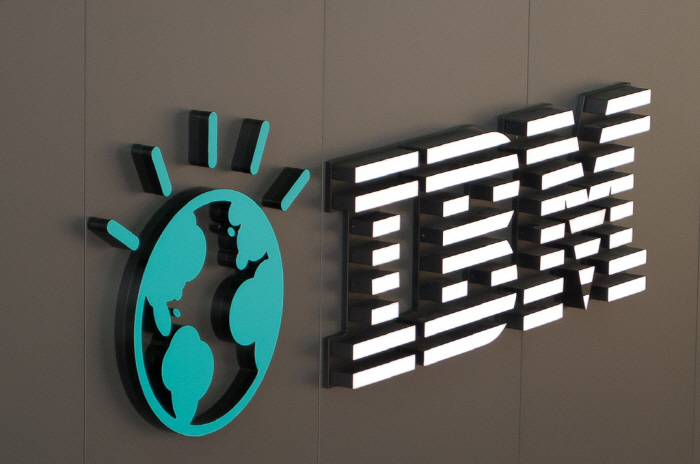The explosion of blockchain technology has created a high-paying job market that’s paying around $130,000 to $150,000 annually. In 2012, companies researching this innovation have been collectively handed over $2 billion. Since then, that number has been growing, both in the investment sector and the job market.
Now, International Business Machine (IBM) is adding to the latter’s number. In its most recent maneuver, the company is looking to hire nearly 2,000 people in France with many of them going to be allocated to the research, development, and implementation of blockchain technology. This came from a statement released by IBM chief executive Virginia Rometty on Wednesday.
While Rometty didn’t share the details on what these people are going to work on, she did mention that the company is currently cooperating with Crédit Mutuel, Generali, Orange Bank, Moët Hennessy Louis Vuitton SE (LVMH), and France's national railway system.
The nearly 2,000 would-be employees aren’t going to be hired all at once but will be trickle into the company’s fold in the next two years. The company will first take in 400 people to conduct blockchain research, as well as sectors focusing on AI and the Internet of Things.
IBM is also tackling multiple fronts on different divisions like humanitarian efforts, business registries, advertising, insurance, and more. But perhaps the most interesting venture of the company revolve around what's being called as the crypto anchor verifier.
This verifier will be developed as a smartphone application. And it will function exactly as its name suggests. But a custom lens still needs to be placed over the phone’s camera in order for it to accurately do what the app is intended.
Here's the short version of the app's capabilities. It can distinguish between a fake drug and the real, a cheap bottle of wine versus a high-end wine, and even tell the difference between fake and real diamonds. All of this scanning capacity harnessed with only the use of a smartphone.
Of course, all the data harvested is going to need a secure cache. And here’s where the blockchain tech comes in the picture since it can act as a storage, as well as an immutable record for the data stored. When the app finally gets released to the mainstream market, anyone will be able to identify if their purchase is exactly what they paid for.



 SpaceX Updates Starlink Privacy Policy to Allow AI Training as xAI Merger Talks and IPO Loom
SpaceX Updates Starlink Privacy Policy to Allow AI Training as xAI Merger Talks and IPO Loom  TSMC Eyes 3nm Chip Production in Japan with $17 Billion Kumamoto Investment
TSMC Eyes 3nm Chip Production in Japan with $17 Billion Kumamoto Investment  Baidu Approves $5 Billion Share Buyback and Plans First-Ever Dividend in 2026
Baidu Approves $5 Billion Share Buyback and Plans First-Ever Dividend in 2026  Amazon Stock Rebounds After Earnings as $200B Capex Plan Sparks AI Spending Debate
Amazon Stock Rebounds After Earnings as $200B Capex Plan Sparks AI Spending Debate  Nvidia Confirms Major OpenAI Investment Amid AI Funding Race
Nvidia Confirms Major OpenAI Investment Amid AI Funding Race  SoftBank Shares Slide After Arm Earnings Miss Fuels Tech Stock Sell-Off
SoftBank Shares Slide After Arm Earnings Miss Fuels Tech Stock Sell-Off  Nintendo Shares Slide After Earnings Miss Raises Switch 2 Margin Concerns
Nintendo Shares Slide After Earnings Miss Raises Switch 2 Margin Concerns  Elon Musk’s SpaceX Acquires xAI in Historic Deal Uniting Space and Artificial Intelligence
Elon Musk’s SpaceX Acquires xAI in Historic Deal Uniting Space and Artificial Intelligence  Global PC Makers Eye Chinese Memory Chip Suppliers Amid Ongoing Supply Crunch
Global PC Makers Eye Chinese Memory Chip Suppliers Amid Ongoing Supply Crunch  AMD Shares Slide Despite Earnings Beat as Cautious Revenue Outlook Weighs on Stock
AMD Shares Slide Despite Earnings Beat as Cautious Revenue Outlook Weighs on Stock  Instagram Outage Disrupts Thousands of U.S. Users
Instagram Outage Disrupts Thousands of U.S. Users  SpaceX Prioritizes Moon Mission Before Mars as Starship Development Accelerates
SpaceX Prioritizes Moon Mission Before Mars as Starship Development Accelerates  Elon Musk’s Empire: SpaceX, Tesla, and xAI Merger Talks Spark Investor Debate
Elon Musk’s Empire: SpaceX, Tesla, and xAI Merger Talks Spark Investor Debate  Sam Altman Reaffirms OpenAI’s Long-Term Commitment to NVIDIA Amid Chip Report
Sam Altman Reaffirms OpenAI’s Long-Term Commitment to NVIDIA Amid Chip Report  Google Cloud and Liberty Global Forge Strategic AI Partnership to Transform European Telecom Services
Google Cloud and Liberty Global Forge Strategic AI Partnership to Transform European Telecom Services  SpaceX Pushes for Early Stock Index Inclusion Ahead of Potential Record-Breaking IPO
SpaceX Pushes for Early Stock Index Inclusion Ahead of Potential Record-Breaking IPO 





























